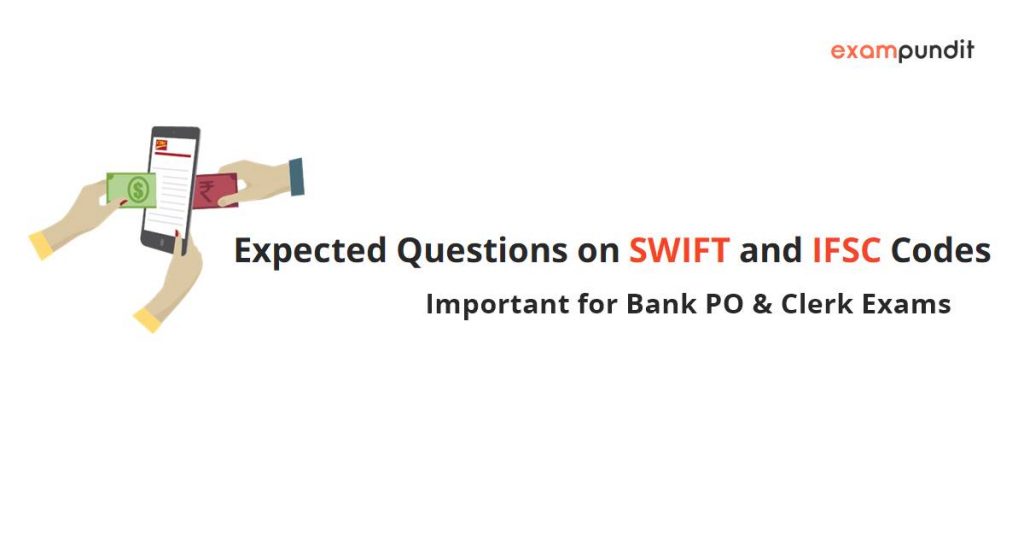Hello and welcome to exampundit. Today we are sharing the most important Expected Questions on SWIFT and IFSC Codes. These will be important for Bank PO & Clerk exams.
The Expected Questions on SWIFT and IFSC Codes was requested by Sougata.
Expected Questions on SWIFT and IFSC Codes
- What does SWIFT stands for? – Society for Worldwide Interbank Financial Telecommunication
- Society for Worldwide Interbank Financial Telecommunication is headquartered in _______. – La Hulpe, Belgium
- The first message sent through SWIFT network was in the year? – 1977
- A SWIFT Code is also known as? – Business Identifier Codes
- What is a SWIFT network? – Interbank communication network for fund transfer
- A SWIFT code consists of ______. – 8 or 11 characters (sometimes 12)
- The first four letters of a SWIFT Code represents – Institution code or bank code.
- The 5 and 6 letters of a SWIFT Code represents – country code
- The last 3 letters or digits of a SWIFT Code represents – branch code, optional (‘XXX’ for primary office)
- Which of the following defines a standard format of Bank Identifier Codes or SWIFT Codes? – ISO 9362
- What is the difference between SWIFT Code and IFSC Code? – IFSC is used in intranational transaction and SWIFT in international.
- What does IFSC stand for? – Indian Financial System Code
- IFSC Codes are required for which of the following type of transactions? – NEFT & RTGS
- How many characters does an IFSC code have? – 11
- The first four alphabetic characters of an IFSC code represents? – Bank Name
- Which of the following character of an IFSC code is 0? – 5th
- Which of the following character of an IFSC code is reserved for future use? – 5th
- The last six characters of an IFSC code represents? – branch
If you have liked this please leave a comment below.
If you need anything else, please let us know.
Please share it with all your friends and fellow-aspirants 🙂
Regards
Team Exampundit
This post was last modified on August 15, 2020 12:15 am



